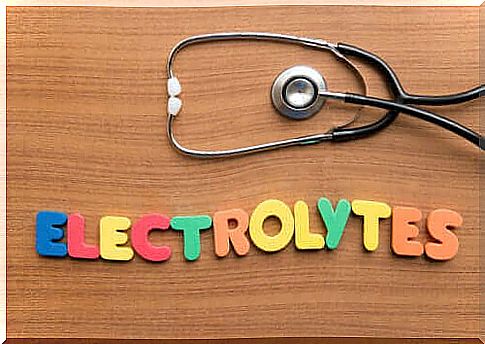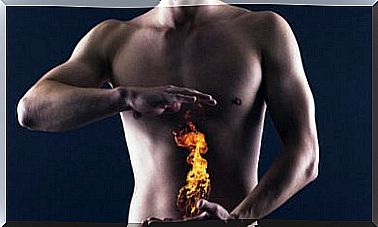What Are Electrolytes?

Athletes are probably the group of people most familiar with electrolytes. This substance has to do with hydration in addition to being widely discussed. What exactly are electrolytes?
Electrolytes are minerals found in the blood and other body fluids, as well as in the cells. The great thing is that they can carry electric charges. This means that the electrolyte can dissolve in water and conduct current.
They are very important for the body. As we will see, an imbalance in electrolytes can be fatal. These substances are linked to the flow of water in the body. They are also linked to the pH level in the blood – acidity – and the activation of the muscles.
The main electrolytes in the body are chlorine, sodium, potassium, calcium, phosphorus and magnesium. For each of these, there are different blood concentration values that we can consider normal. For example:
- In potassium, normal values vary between 3.5-5.3 mEq / L
- Sodium has normal values between 136-145 mEq / L
- For chlorine, they are between 97-107 mEq / L
Causes of an electrolyte imbalance
The normal electrolyte balance in the body that fluctuates between certain values can be changed. Hormonal changes, diseases of organs such as the kidneys or liver, and the use of certain medications can affect them. Among the most common causes of an imbalance we find:
- Dehydration: When the body enters a period of dehydration, it loses fluids. Furthermore, it also loses these electrical substances. During fever peaks or gastroenteritis with vomiting and diarrhea it is possible to lose electrolytes.
- Malabsorption syndrome: There are pathologies that change the process of absorption in the intestine. When this happens, the electrolytes ingested may not actually enter the body.
- Endocrine diseases: Diabetes or hypothyroidism are examples of hormonal problems that disturb the balance in the body’s internal environment.
- Chemotherapy: Cancer patients undergoing chemotherapy are highly exposed to electrolyte imbalances. Those who treat cancer patients must always make sure that they replace what is lost during the treatment.
- Medication: In addition to chemotherapy, there are also other commonly used medications that cause loss of minerals. Diuretics and some corticosteroids are two examples.
- Kidney disease: The kidneys must regulate substances that leave the body. When it fails, we can lose sodium, potassium, calcium, phosphorus and magnesium.

The most common imbalances
Some electrolyte imbalances are more common than others. Some are temporary and can correct themselves automatically, while others need external intervention to return to normal levels.
Many of these imbalances are not serious. However, some are complicated. The long-term consequences can be serious.
In the case of calcium, for example, hypocalcaemia (lower blood volume) or hypercalcaemia (larger blood volume) may occur. For women, hypocalcaemia may increase the risk of osteoporosis when menopause begins. On the other hand, hypercalcemia can lead to kidney stones.
Calcium, both too much and too little, alters neuronal function. Hyponatremia, which is a low sodium level, and hypernatremia, high sodium levels in the blood, cause irritability and confusion. In extreme cases, this can lead to seizures.
Potassium may be the electrolyte that causes most emergencies. The heart muscle cells require specific potassium values for the heart rhythm to be as it should be. The lack of potassium in the blood is a trigger for arrhythmia, which has its own risks.
When it comes to excess potassium in the blood, even if it is not urgent, you should talk to a specialist to detect kidney problems. The first manifestation of renal failure may be hyperglycemia, which involves an increased amount of potassium in the blood.

Sources of electrolytes
It is important to know where we get electrolytes from through our diet. Not only to compensate for losses, but also to ensure a balanced diet based on these daily requirements.
In addition to sports drinks, you can also find electrolytes in the following foods:
- Calcium: Many types of fish contain calcium, especially sardines. It can also be found in spinach and almonds.
- Phosphorus: There is phosphorus in almonds and many other nuts. Lean meats and eggs are reliable sources of this electrolyte, as are dairy products such as cheese and yogurt.
- Sodium: Beets, celery, olives and tomatoes.
- Magnesium: Green leafy vegetables, fish and nuts. There is also a lot of magnesium in chocolate.
- Potassium: Finally, you can find potassium in large quantities in green leafy vegetables and in many types of fruit, such as bananas and citrus fruits.









